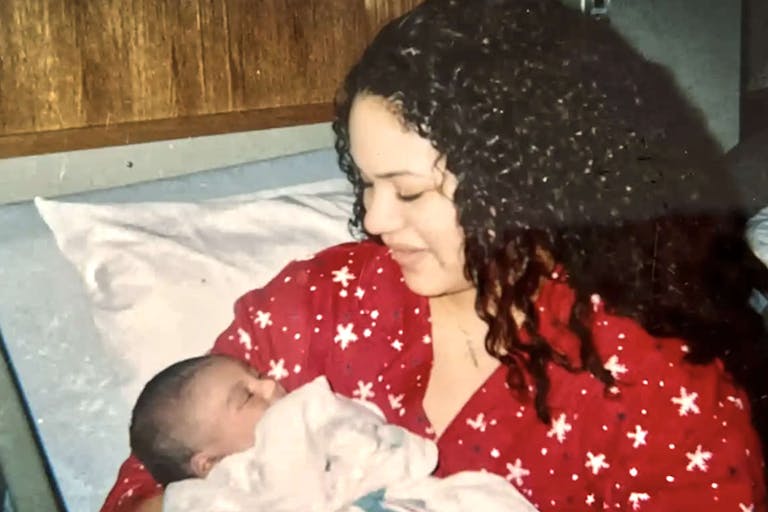
She chose life for her children, no matter what the future might hold
Melina Nicole
·
Investigative·By Carole Novielli
Idaho Planned Parenthood drops other services but keeps abortion
News from a Planned Parenthood facility in Idaho further demonstrates that Americans do not want to access basic health services from the largest provider of abortions in the nation. Reports indicate that Planned Parenthood in Boise, Idaho, which commits abortions, has been forced to end a pilot program that allegedly offered primary health services. The program was only in operation for a few years.
Boise Public Radio reports:
It’s true that Planned Parenthood is ending some primary care services in Boise, but its main services, things like women’s health and reproductive care, are safe and going strong. Broader primary care services at the Boise clinic—treating things like high blood pressure, high cholesterol and more acute colds and flus—were part of a pilot program that started in 2016. Those particular services are the ones that are no longer being offered.
The reason for nixing the program, according to Kara Cadwallader, VP of Medical Affairs and Senior Medical Director for Planned Parenthood of the Great Northwest and Hawaiian Islands (PPGNHI), was that Planned Parenthood “just didn’t have many patients…. [M]ost of the people they were trying serve had access to those services elsewhere.”
The 2016 Idaho Health and Welfare Vital Statistics Report states that abortions were committed in Idaho on “girls as young as 10-14” and on “babies as far along in gestation as 25 weeks.”
READ: When Planned Parenthood closes, women find real health care at hundreds of other clinics
Recent examples from various states, listed below, demonstrate that what is behind some Planned Parenthood closures are declining patient demand as well as the corporation’s decision to redirect resources to busier locations.
Indiana
When Planned Parenthood of Indiana and Northern Kentucky announced the closing of two facilities in central Indiana, Fox59 reported, “Access to free birth control through the Affordable Care Act and ability to get emergency contraceptives like Plan B without a prescription also reduced the number of people walking through their doors.”
New Mexico
In May 2017, the Santa Fe New Mexican reported that Planned Parenthood’s “clinic closures in Albuquerque, Rio Rancho and Farmington… are part of a larger consolidation effort aimed at keeping the organization solvent for years to come….”
But a May 2017 New Mexico Political Report expounded further, noting that those three Planned Parenthood facilities slated to close had “reduced patient volume” and challenges in the healthcare industry.
New Jersey
In April 2018, The Signal reported that “the lack of staff and a smaller inflow of patients relative to other locations” led to drastically cutting hours at the College of New Jersey, because Planned Parenthood couldn’t operate “without losing money, according to Janice Vermeychuk, the director of Student Health Services.”
Wyoming
At the announcement that Planned Parenthood intended to close its Casper office, Whitney Phillips, Senior Director of Strategic Communications and Marketing for Planned Parenthood of the Rocky Mountains (PPRM), told YP Radio, “Multiple factors — including reduced patient volume and greater operational efficiencies — drove the difficult but necessary decision to close the health center.”

Live Action News has documented that previous efforts by Planned Parenthood to “reinvent” itself as a health care organization failed because its leaders were concerned the move would diminish the organization’s ability to focus on abortion. Today, while profitable abortions are on a steady decline nationally, the corporation’s abortion market share has increased to an estimated 35%, climbing nearly 11% from 2006 to 2016.
The organization shuttered more than 280 facilities from 2007 to 2017, and lost over 700,000 patients between 2006 and 2016 — a drop of nearly 23 percent (3.1 million in 2006 to 2.4 million in 2016.)
The corporation’s recently published plan indicates that abortion will remain a primary focus.
Live Action News is pro-life news and commentary from a pro-life perspective.
Contact editor@liveaction.org for questions, corrections, or if you are seeking permission to reprint any Live Action News content.
Guest Articles: To submit a guest article to Live Action News, email editor@liveaction.org with an attached Word document of 800-1000 words. Please also attach any photos relevant to your submission if applicable. If your submission is accepted for publication, you will be notified within three weeks. Guest articles are not compensated (see our Open License Agreement). Thank you for your interest in Live Action News!

Melina Nicole
·
Investigative
Carole Novielli
·
Abortion Pill
Carole Novielli
·
Investigative
Carole Novielli
·
Investigative
Carole Novielli
·
Investigative
Nancy Flanders
·
Investigative
Carole Novielli
·
Abortion Pill
Carole Novielli
·
Abortion Pill
Carole Novielli
·
Investigative
Carole Novielli
·
Abortion Pill
Carole Novielli
·